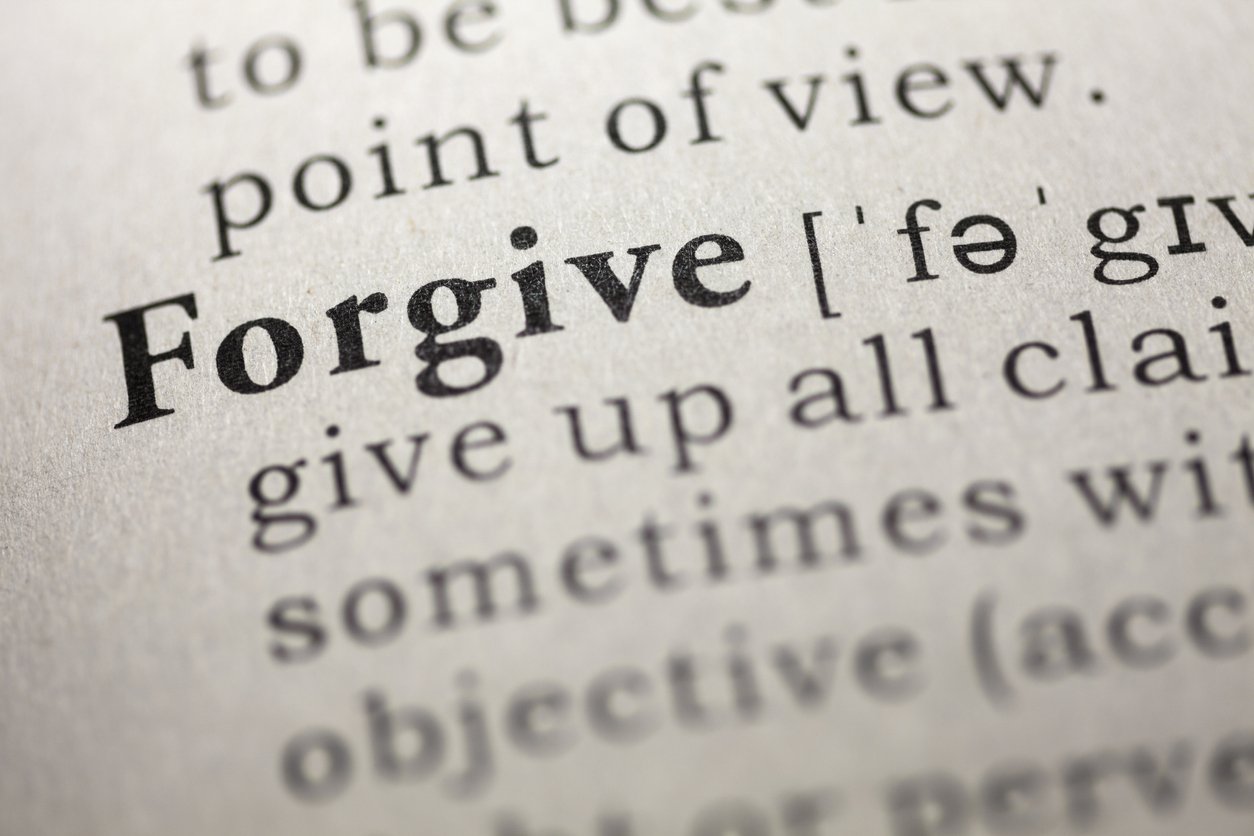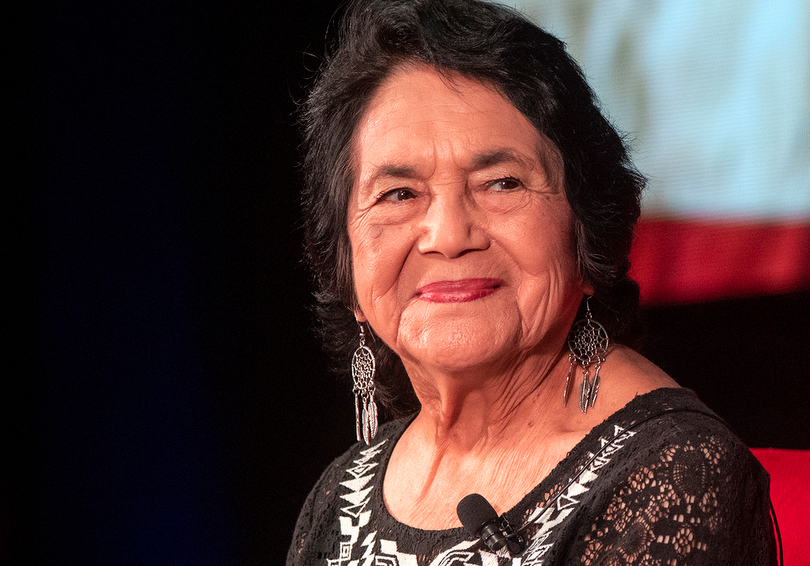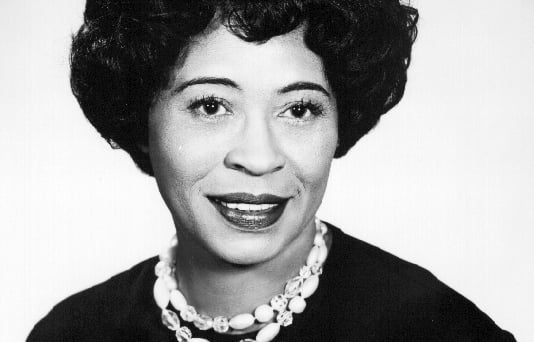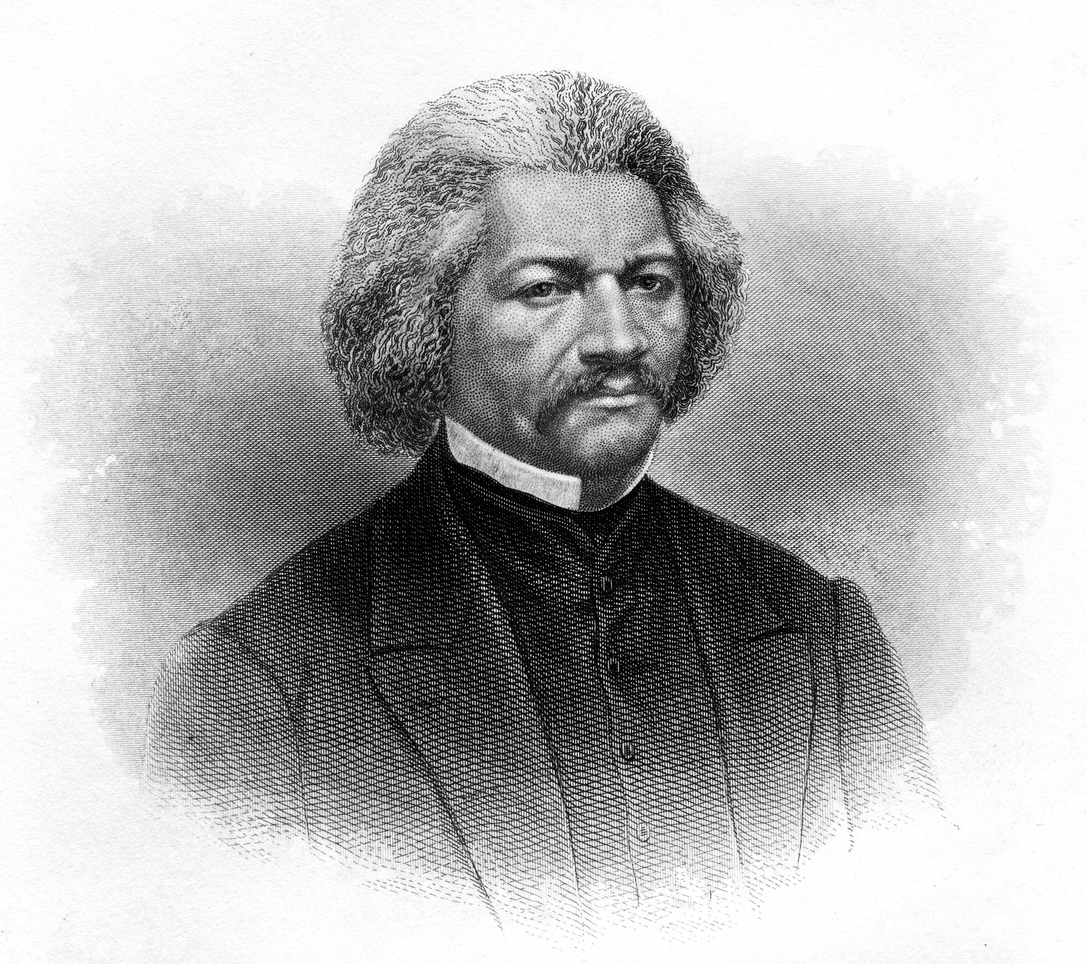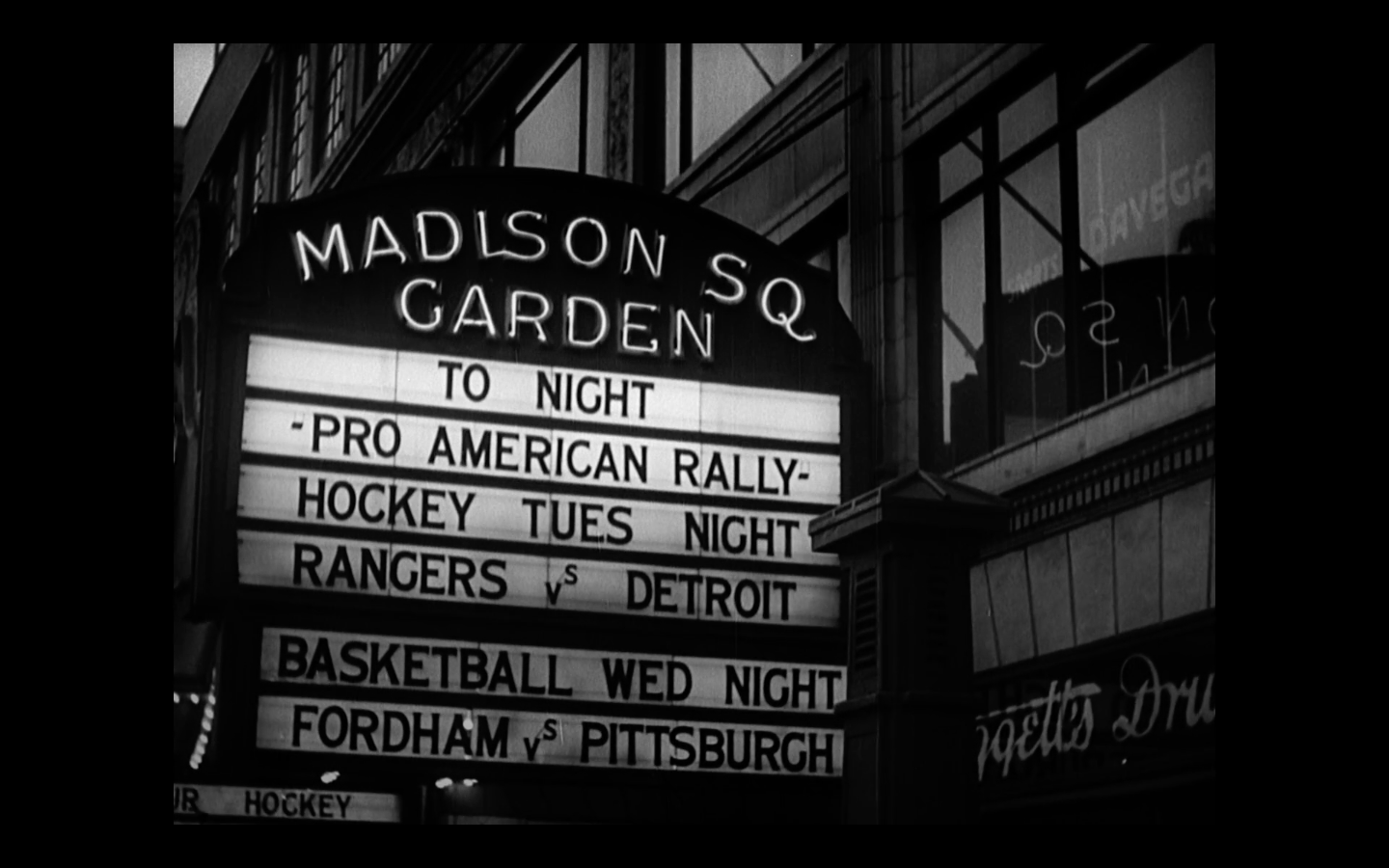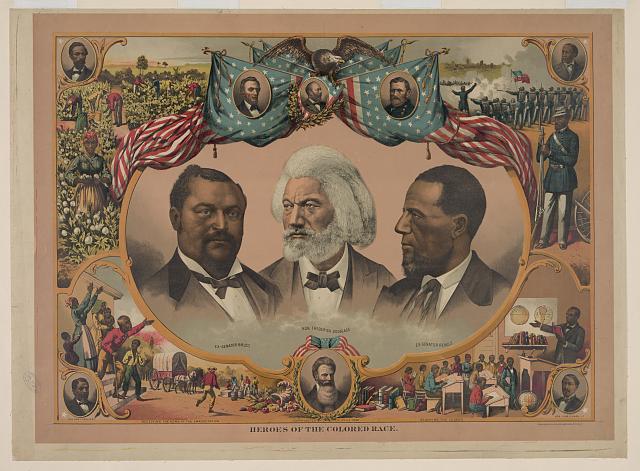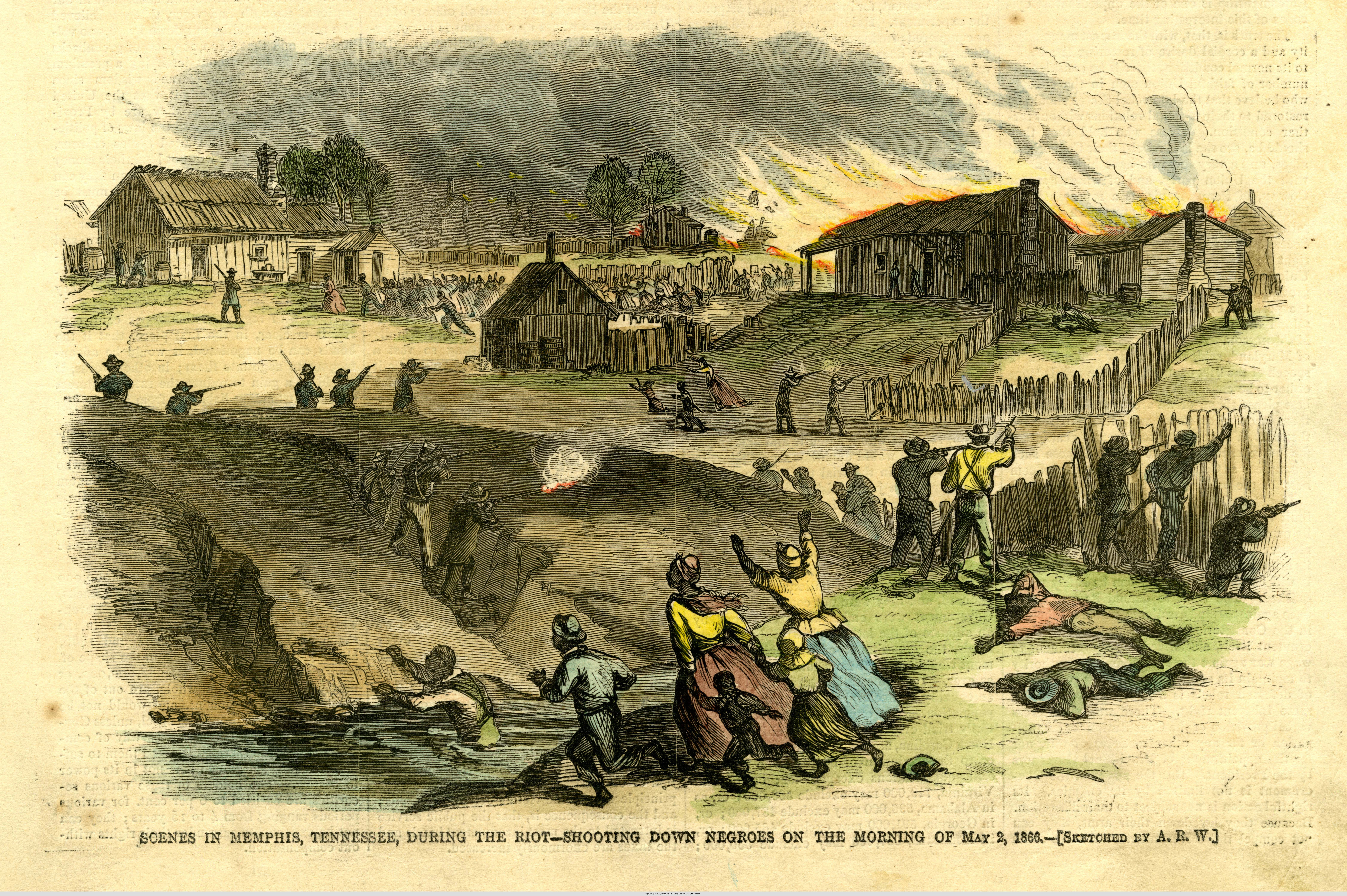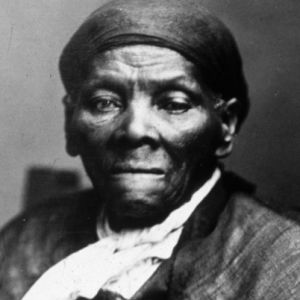The news cycles of the last few years have captured countless instances of racist violence perpetrated by white people against black people—a continuation of a long history of antiblack violence in the United States. And amid this legacy of violence, a number of black figures have done the unimaginable: they have publicly expressed forgiveness to avowedly racist white people who murdered their relatives and community members.
This National Hispanic Heritage Month, we find an opportunity to explore histories, contributions, and experiences of Hispanic and Latinx people in our communities and classrooms that are often left out of the news and history books. One such story is that of Dolores Huerta—a Chicana activist whose contributions rival those of the most renowned civil rights leaders in U.S. history, but whose legacy is significantly less known. Awarded the Presidential Medal of Freedom in 2012 and nine honorary doctorates, Huerta is a living legend in the labor movement and has been a tireless advocate for social justice for over 50 years.
Topics: American History, Upstander, Latinx History
Remembering Daisy Bates: Orator at the March on Washington
Posted by Kaitlin Smith on August 28, 2019
Today marks the 56th anniversary of the March on Washington—the historic 1963 protest in which as many as 500,000 people marched to demand jobs and freedom for Americans of all racial backgrounds. Though many of us remember this as the day that Dr. Martin Luther King, Jr. delivered his iconic “I Have a Dream” speech, it is easy to forget that he was not the only civil rights leader to address the crowd. One of the leaders who joined him was movement veteran Daisy Bates—the only woman permitted to speak, though not in her own words.
Topics: American History, Black History
Summer 2019 marks the centennial of what author and activist James Weldon Johnson referred to as “Red Summer,” a series of 1919 lynchings and other acts of violence against African Americans across the country. These events, which unfolded in several cities including Chicago and Washington, DC, are not widely known or taught. But they should be as our nation grapples with the history of racism and its legacies.
Topics: American History, Racism
In Frederick Douglass’ landmark 1852 speech, “What to the Slave is the Fourth of July?,” he exposed the hypocrisy at the heart of American democracy in the antebellum period. Douglass addressed descendants of white American colonists in Rochester, New York—colonists who had declared independence from the oppression of British rule only to construct a new world predicated on the enslavement of other human beings. He galvanized the audience to examine these contradictions in the wake of a legal decision that would seal the fates of many thousands of enslaved Africans for over a decade.
Topics: Reconstruction, American History, Black History
Oscar-nominated Short Confronts American Antisemitism—Past and Present
Posted by Alijah Case on February 26, 2019
Marshall Curry’s short film, A Night at the Garden, forces an American public to reckon with the horrific reality of its own antisemitism. Nominated for an Academy Award in the Documentary Short Subject category, the seven-minute, black and white film is comprised entirely of archival footage. Without any of the narration or explanation common to historical documentaries, the film demands one’s full attention, transporting its viewer to a world at once distantly dystopian and hauntingly familiar. It is February 20th, 1939. The Madison Square Garden marquee reads: “Tonight Pro American Rally.” There will be hockey on Tuesday, basketball on Wednesday. It could be a New York night like any other.
Topics: Antisemitism, Memory, American History
The Myth of a Post-Racial Society After the Obama Presidency
Posted by Jeremy Nesoff on February 8, 2017
As the first black president, Barack Obama's legacy will always include issues of race. At his farewell speech he acknowledged this: "After my election, there was talk of a post-racial America. Such a vision, however well-intended, was never realistic. Race remains a potent and often divisive force in our society.” His presidency reveals the longstanding myth that American history has always been on a steady, progressive path towards embracing equality for all.
Topics: Democracy, Reconstruction, American History, Civil War, Racism, Judgement and Legacy, legacy, race
One hundred and fifty years ago, two massacres in 1866 – one in Memphis and one in New Orleans – galvanized national opposition to the Reconstruction policies that President Andrew Johnson enacted. These policies offered almost no protection to newly freed slaves in the aftermath of the Civil War.
How can confronting challenging historical moments like these become a step toward truth and reconciliation around issues of race that we face today? First, we need to understand the history behind them.
Topics: Democracy, Reconstruction, Race and Membership, American History, Truth and Reconciliation
Today's News, Tomorrow's History: Tubman on the $20 Bill
Posted by Monica Brady-Myerov on May 26, 2016
Today’s News, Tomorrow’s History is an ongoing series with Listenwise. This series connects Facing History’s themes with today’s current events using public radio to guide and facilitate discussions around the social issues of our time. We will take a look at the current responses to the changes in United States currency.
https://listenwise.com/When you look at traditional American currency, from bills to coins, you will see the portraits of presidents, founders, and inventors. On these bills, all faces are men. In 48 other countries in the world, there are women on paper currency. The United States will join these countries in the year 2020.
Topics: Diversity, American History, Today's News Tomorrow's History, Listenwise
How I Faced My Identity When Teaching the Reconstruction Era
Posted by Brigid Rowlings on February 11, 2016
As an educator who has taught the Facing History Reconstruction unit several times, one thing has become clear: who we are and where we are shapes the way we teach our students about this critical period in history. I’ve heard my fellow educators grapple with some of the same questions I’ve considered. How do we approach the topic of race and racism? How can we talk about African American history with a predominantly white student body versus a predominantly African American one? Or, how can we talk about the legacy of slavery with a predominantly urban or rural student body?
Topics: Reconstruction, Teaching, Identity, American History, Lesson Plans, Racism

